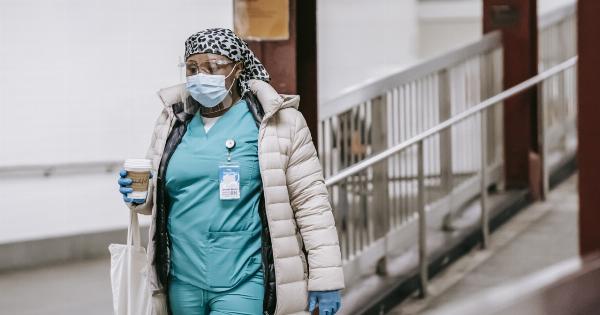The world is facing yet another outbreak of the deadly Ebola virus, and this time, it’s happening in the Democratic Republic of Congo (DRC). The current Ebola outbreak in DRC has killed over 2,500 people since it began in August 2018.
Ebola is a highly infectious virus that causes severe bleeding, organ failure, and death. The virus is transmitted through contact with bodily fluids of infected people or animals. This outbreak has posed a tremendous challenge to the health authorities and has raised concerns all over the world.
The Outbreak and its Impact
The Ebola virus has been a matter of concern since it first appeared in 1976. The current outbreak in DRC is the second-largest Ebola outbreak after the one that killed over 11,300 people in West Africa between 2014 and 2016.
The outbreak has worsened in recent months due to the political instability in the region, which has slowed down the response efforts. The virus has spread to several provinces in DRC, making it challenging for health workers to contain it.
The outbreak has also raised concerns about the potential for the virus to spread beyond DRC.
Several neighboring countries have put measures in place to prevent the spread of the disease, but the risk of the virus spreading to other parts of the world remains high. The World Health Organization (WHO) has declared the outbreak a Public Health Emergency of International Concern (PHEIC) and has called for urgent action to contain it.
The Response to the Outbreak
The response to the Ebola outbreak in DRC has been challenging due to the political instability in the region. In addition, there have been several cases of violence against health workers and facilities, which have hindered the response efforts.
The WHO, in collaboration with the government of DRC and other partners, has been working to contain the outbreak. The response efforts have mainly focused on identifying and isolating infected individuals, tracing their contacts, providing treatment and care for patients, and conducting community awareness campaigns.
The response efforts have been hampered by various factors, including inadequate funding and resources, inadequate healthcare infrastructure, and lack of access to affected communities.
The WHO and its partners have called for increased support and funding to enable them to contain the outbreak effectively.
The Need for Urgent Action
The Ebola outbreak in DRC is an urgent public health crisis that requires immediate action. The outbreak has already claimed thousands of lives, and the risk of it spreading to other parts of the world remains high.
The WHO and its partners have called for urgent action to contain the outbreak, but more needs to be done. The following are some of the steps that should be taken to fight the Ebola outbreak:.
1. Increase funding and resources
The response efforts require adequate funding and resources to be effective. The WHO and its partners have called for increased support to enable them to contain the outbreak.
Governments and international organizations should provide funding and resources to support the response efforts.
2. Improve healthcare infrastructure
The healthcare infrastructure in DRC is inadequate and requires improvement.
The government of DRC and its partners should invest in improving healthcare infrastructure to enable health workers to respond effectively to the outbreak and provide adequate care and treatment to patients.
3. Increase access to affected communities
The response efforts have been hampered by the lack of access to affected communities.
Governments and international organizations should work together to ensure that health workers have access to affected communities to enable them to identify and isolate infected individuals and provide treatment and care to patients.
4. Strengthen community engagement
Community engagement is crucial to the success of the response efforts. Governments and international organizations should work with communities to raise awareness about the Ebola virus, its symptoms, and how to prevent its spread.
They should also involve communities in the response efforts, including contact tracing, surveillance, and treatment.
5. Address the root causes of the outbreak
The Ebola outbreak in DRC is a symptom of deeper problems, including poverty, conflict, and weak healthcare systems. Governments and international organizations should address the root causes of the outbreak to prevent future outbreaks.
Conclusion
The Ebola outbreak in DRC is an urgent public health crisis that requires immediate action. The WHO and its partners have called for urgent action to contain the outbreak, but more needs to be done.
Governments and international organizations should provide funding and resources to support the response efforts, improve healthcare infrastructure, increase access to affected communities, strengthen community engagement, and address the root causes of the outbreak. By working together, we can fight and contain the Ebola outbreak in DRC.































